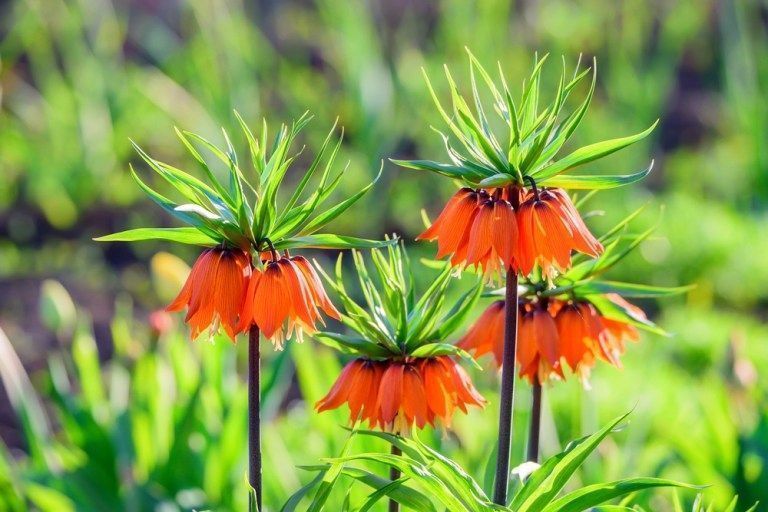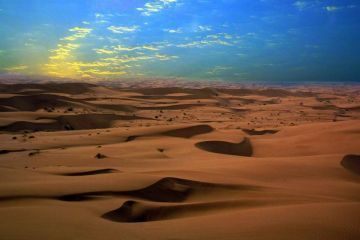Author: Roshan Firouz
[The views expressed in this blog post are the author’s own.]
In 1979, Iran erupted in a revolution against the Pahlavi regime. I was 21 years old and had just signed up to study for a Masters degree in archaeology at Tehran University. A few weeks after I started my courses, I was approached by the BBC correspondent and asked if I might work for them part time, as a translator and researcher. Seemed a good idea at the time …
The university was a hotbed of student politics. After the iron fisted regime of the Shah of Iran, it was like a breath of fresh air to be able to have views that did not agree with the previous one party system. In addition to the very leftist leanings of the students, there were many ethnicities who were hoping for a degree of autonomy if not outright independence. Amongst these were the students from the province of Kurdistan in western Iran. My family had always had a particular attachment to Kurdistan, and many of these students were friends. Initially my job involved translating the speeches of politicians speaking in the majlis, the equivalent of a parliament. I was also to write reports about student politics at the university.
Two months later, Kurdistan declared itself independent and the tension in Tehran became palpable. Wasting no time, the BBC joined up with A(Australian)BC news and three journalists and I traveled to the west of Iran in the hopes of getting into the newly autonomous province of Kurdistan. The problem was that the then government considered this unilateral declaration illegal and made it a crime to visit the area. But journalists really are adrenaline junkies and their lunacy was contagious.
We drove through the night and arrived near the southern provincial border of Kurdistan without being spotted by the revolutionary guards. Towards dawn, winding along a small road in a rocky valley, tension mounting, we wondered what we would find. Suddenly, out of nowhere, armed Kurds dressed in tribal costume appeared from behind boulders. They surrounded the car pointing an array of nasty looking guns at us but we were simply thrilled to have arrived in Kurdistan.
The BBC was very well respected at the time and before long, guns were slung back on shoulders, pistols were holstered and we were escorted to a nearby village. We were given a splendid welcome followed by a sumptuous Kurdish breakfast. Over sweet tea we discussed this important move by the Kurds and heard about their plans for the future.
The following days were spent meandering north along mountain valleys covered in oak and wild pistachio trees. The Crown Imperial flowers covered hillsides with their lovely orange glow (and a whiff of their strange smell). Sounds of bells on sheep and goats could be heard echoing along the valleys. Mares and foals grazed in the high mountains while Kurdish tribesmen rode spectacular Kurdish stallions. These were the original war horses of the ancient world, the Nisaean horse, made famous by Xenephon. Alexander the Great is said to have visited the plains of Nisa while in Iran, just to see the breeding grounds of these famous horses.

Although Kurdistan as a whole had declared independence, there were many factions within the province. What united them was their intense dislike of the regime of the Shah which had not given them any freedom. During these heady moments when it seemed that things were going well for them, the Kurds looked to be unified. All the various factions, wanted the same for their people, which is what the Kurds have wanted for centuries: freedom to be Kurdish.Our last day was to be a surprise and our hosts looked very smug. We drove along valleys sandwiched between huge mountains, and by midday we saw our surprise: an arms bazar in a remote area near the border with Iraq. On sale were a variety of murderous looking weapons and man toys: antitank missiles, shoulder held rocket firing devices, machine guns, grenades etc. The journalists, all men, looked like children in a sweet shop. In fact they hardly needed my translating skills so I went off to chat with a lovely older tribesman who taught me all sorts of useful things: how to disable tanks using sugar, how to smuggle opium without getting caught, where to buy the best Kurdish horses and who had the finest fighting partridges.The following day at dawn, we left via the north side of the province coming out in the town of Bijar where we were promptly arrested and put in prison. I did my best to explain the situation to the Colonel in charge, but to no avail. We had broken the law and the local revolutionaries were delighted to have bagged such important criminals. It took two days to talk our way out, with numerous phone calls to the British Embassy by the journalists and to various ministries by the guards.Arriving in Tehran, I took two days off work to catch up with all the lectures that I had missed. At the university there had been a crackdown on what was called “the decadent and liberal attitudes” of the students and the atmosphere was charged. My Kurdish friends were delighted that the BBC would be publicizing their fight for independence but their outlook was not optimistic. Two days later, during a peaceful student meeting, the university was attacked by guards and in the ensuing chaos five students were killed. The attacks continued for a further two days, the excuse being “subversive elements corrupting education”. As the religious zeal became stronger amongst the ruling elite, they were able to impose their narrow minded and bigoted rules on the country and within a week, most of the professors at the university had been replaced.A week later, bolstered by the regime’s Islamic zeal, a group of students took over the American Embassy in Tehran and held fifty two American diplomats hostage. I was shocked to find that one of the students in this lunatic group had been in my sister’s class at school. Like us, she had attended the International school of Tehran where we were taught in Persian and English. Standing at the gate of the Embassy, trying to get an official statement through the barred gates from some scruffy looking students, I was interrupted by a man asking them very loudly how the hell he was going to get his visa.
The hostage situation dragged on for over a year. During this time the Islamic government of Ayatollah Khomeini hijacked the revolution completely and the regime became a fundamentalist dictatorship. I had to brush up on my Arabic as the new government loved to use very long and complicated words from the Arabic language to refer to hardcore religious doctrine. Modern spoken Persian is made up of approximately 30% Arabic words. But with this new regime, like the original invasion of Iran by the Arabs in 651, this most foreign of languages was forced upon us.
On 24 April 1980, the ongoing hostage crisis was periodically forgotten. At dawn I got a call from the BBC boss who told me to get to the office right away. I arrived to find him in a frenzied state. I am not sure how he had managed to be the only journalist to find out about the failed American attempt to free the hostages the night before. He told me to call the ministry of defense and ask for an official statement. After ten rings, I got a very sleepy response and when I asked for their reaction to this event there was a stunned silence. The ministry itself had not heard. But what had happened the night before in the eastern deserts of Iran, near the town of Tabas, was truly horrific. Apparently an American secret operation had gone terribly wrong when the helicopters developed problems due to sand and mechanical faults. As the plan was aborted and a hasty return to the gulf attempted, one of the helicopters crashed into a transport aircraft and both caught fire. This killed eight American servicemen whose charred remains were left in the desert.

Operation Eagle Claw, we later heard, had been ordered by Jimmy Carter in an attempt to free the American hostages. The plan was to secretly land 8 helicopters in the desert, then drive up towards Tehran, and take over an army base near the capital. From there 93 elite soldiers would sneak into Tehran and assault the embassy on the second night. Protection on the second night, the actual rescue, was to be provided by aircraft flown in from the Persian Gulf. These would strafe all the neighbourhoods of Tehran surrounding the occupied US embassy. I only found out a few days later, that had the operation succeeded, my parents’ house would have been destroyed. In the end, the Islamic Republic milked this American disaster for all it was worth and Jimmy Carter would suggest that he lost his bid for a second term as President because of the debacle.Although the Americans were really disliked by the new Islamic regime, Iranians have always been extremely suspicious of the British. There is a saying: if you lift the beard of a Mullah, underneath you’ll find written “Made in Britain”. Any sign of trouble or unrest is greeted with the line “It is the work of the English”. Iran has had political relations with England since the thirteenth century, but it started out as a mere alliance. Later, in the nineteenth and twentieth centuries the British took on a much more active role, toppling regimes and replacing rulers. Not surprising that people are suspicious, British meddling in the area is long tradition.So it came as no surprise when, a few months later, a group of thugs got together and managed to throw firebombs into the compound of the British Embassy setting fire to the Chancery. The irony was that the street from which they threw the bombs had had its name changed the week before, from Churchill Street to Bobby Sands Street. Bobby Sands was a member of the IRA who died on hunger strike while in prison in Northern Ireland. For the revolutionary Iranian government it was most definitely a case of “my enemy’s enemy is my friend”. All who opposed the British were supported by the new Islamic government. Demonstrations against the “decadent west” were an ongoing thing but the British got more attention than the others. At the following demonstration a few weeks later, I met a young British diplomat……

